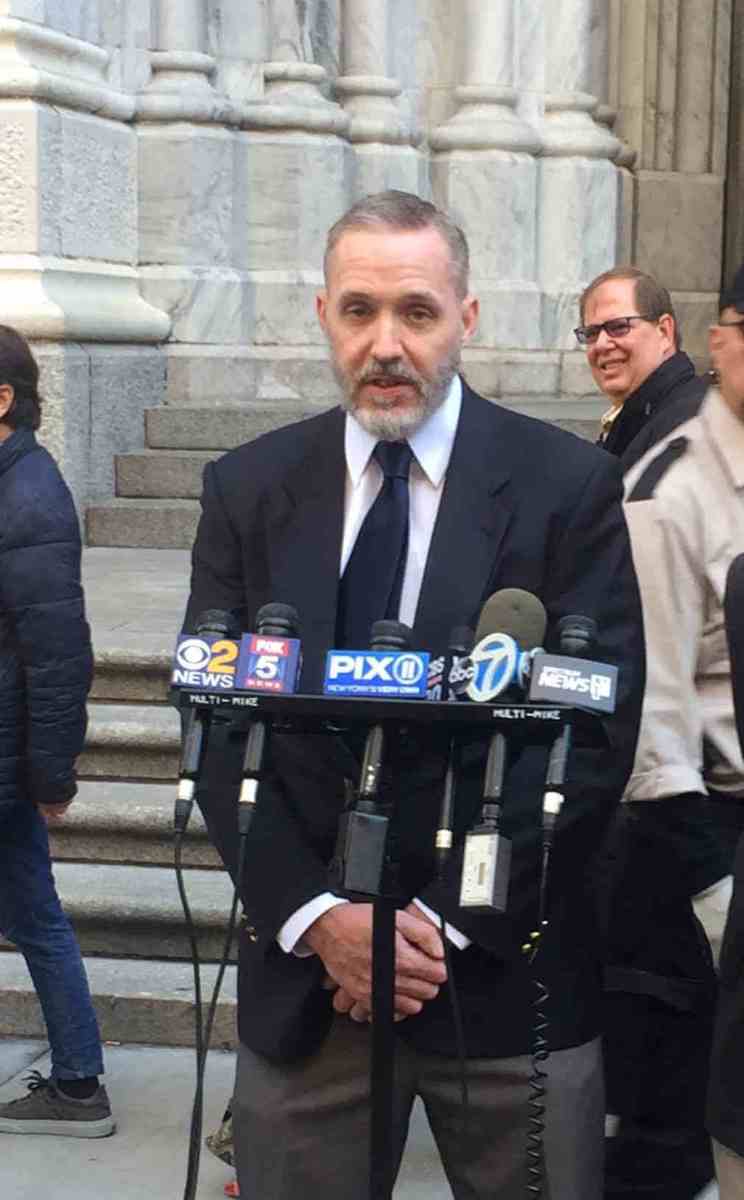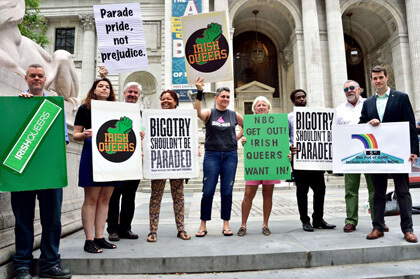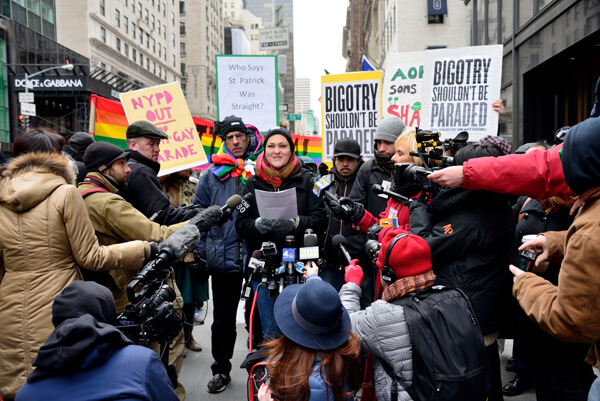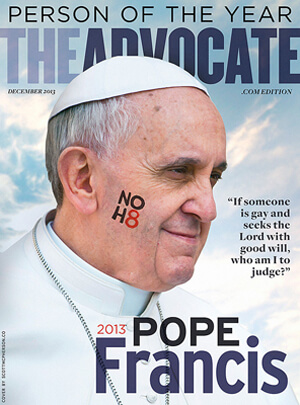The Archdiocese of New York has removed an auxiliary bishop, 74-year-old John Jenik, from his public ministry after a Church body concluded that in the 1980s, as a parish priest in the Bronx, he engaged in inappropriate sexual abuse of a teenage boy over a period of years.
In a statement first reported in The New York Times, Cardinal Timothy Dolan said, “Although the alleged incidents occurred decades ago, the Lay Review Board has concluded that the evidence is sufficient to find the allegation credible and substantiated.”
The charges against Jenik were brought to the Archdiocese’s attention in January by the victim, Michael Meenan, who is now 52. At a November 1 press conference outside St. Patrick’s Cathedral, Meenan said he met Jenik going to Confession as a young teen. “Confession wasn’t in a wooden box then, it was face to face,” he recalled. Explaining he spoke to Jenik about his father’s health problems, Meenan said, “I was sobbing, and this guy moved in.”
The priest, Meenan said, befriended his family, officiating at his eldest sister’s wedding and baptizing her children. Soon after meeting the youth, Meenan said, Jenik began taking him out to dinner and movies, many pornographic, and on as many as 70 overnight stays upstate — where he gave him alcohol — over a six-year period.
Once when he was 15, Meenan said, Jenik had him share his bed. “He began groping me,” he recalled, “and put his face so close to me, either to kiss me or to suck my breath. I thought if this guy makes a move for my private areas, I’m going to have to get out of here.”
In an October 29 letter, Jenik denied Meenan’s allegations, writing, “I continue to steadfastly deny that I have ever abused anyone at any time. Therefore I will ask the Vatican, which has ultimate jurisdiction over such cases to review the matter, with the hope of ultimately proving my innocence.”
Meenan, a Brown University graduate, worked for several years as deputy editor at Gay City News, and was later a reporter at New York 1 and The New York Times. Asked by a reporter why he was coming forward now, Meenan, describing psychological trauma he continues to suffer, said, “My life is in a ditch.” He added, “It was the greatest evil I ever witnessed.”
In 2016, Meenan prevailed on Fordham Prep, where he went to high school, to discharge a religious studies teacher, Fernand Beck, whom the school concluded sexually molested him after a drinking party at a Westchester County home. Meenan first brought the matter to the attention of Fordham Prep officials the same year, but the school took no action for 32 years. Fordham Prep eventually paid Meenan a settlement in the Beck matter, and he will seek compensation under the Archdiocese’s program to offer reconciliation to sexual abuse victims of its priests.
Despite this compensation effort, Dolan opposes legislative efforts to expand the time allowed for childhood victims to come forward. Under the Child Victims Act passed by the Assembly, individuals could press criminal charges against abusers up to the age of 28 and seek civil remedies up to 50, with a one-year window for victims of any age to come forward with civil claims. In Republican hands, the Senate blocked action on the bill, but Democratic State Senator Brad Hoylman said when his party takes the leadership in January he would expect movement.
That could be the only justice for a victim like John Griffith, who turns 59 this month and was abused as a first and second grader in his Bronx parish, Holy Cross in Soundview, by a Franciscan friar. Because the priest was affiliated with his order and not the Archdiocese, Griffith said, he is not eligible for compensation under the fund Dolan established.
“I was a child,” Griffith said, his voice trembling as he stood on Fifth Avenue after Meenan’s press conference. His father, who had a drinking problem, was absent from the family home for about two years. “While my father was gone, [the priest] became very engaged with my family,” he recalled. “It started out very innocently, then things began to happen when he gained my trust.”
Though Griffith shared his story with his siblings — after his mother’s death — and with friends over the years, he first began looking at taking action when he saw the 2015 film “Spotlight,” about the Boston Globe’s investigation of the abuse scandal in that city. Griffith has yet to receive a response to a letter to Franciscan authorities. His abuser, he said, is deceased.
Griffith knew Meenan’s family as a youth, but only reconnected with him as he became involved with the network of abuse survivors. Meenan said that as he has spoken out in recent years, he’s heard from “hundreds” of men who faced similar abuse.




































